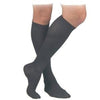What is Diabetic Neuropathy

Table Of Contents:
Diabetes affects millions of people worldwide, and one of its potential complications is diabetic neuropathy. In this comprehensive guide, we will explore the intricacies of diabetic neuropathy, its impact on individuals, and effective management strategies. By understanding the causes, recognizing the symptoms, and implementing appropriate treatment measures, individuals can better navigate this condition.
Understanding Diabetes
Diabetes is a prevalent chronic condition characterized by high blood sugar levels. It occurs when the body fails to produce or properly use insulin, a hormone responsible for regulating blood sugar. By discussing the types of diabetes and its long-term complications, we can lay the foundation for understanding diabetic neuropathy.
What is Diabetic Neuropathy?
Diabetic neuropathy is a nerve disorder caused by long-term exposure to high blood sugar levels. It affects various parts of the body, primarily the feet and legs. We will explore how prolonged elevated blood sugar levels damage the nerves and discuss the different types of diabetic neuropathy, including peripheral, autonomic, focal, and proximal neuropathy.
Signs and Symptoms of Diabetic Neuropathy
Early detection and prompt intervention are crucial for managing diabetic neuropathy effectively. By identifying the signs and symptoms, individuals can seek appropriate care. We will delve into the common symptoms, such as tingling, numbness, and pain, while highlighting the potential progression and impact on daily life.
Risk Factors and Prevention
Understanding the risk factors associated with diabetic neuropathy can empower individuals to take preventive measures. By managing blood sugar levels, controlling high blood pressure, and adopting a healthy lifestyle, individuals can potentially delay or prevent the onset of neuropathy. We will provide actionable tips for reducing risk and promoting nerve health.
Diagnosing Diabetic Neuropathy
Proper diagnosis is essential for effective management. We will discuss the diagnostic process, including medical history, physical examination, and various tests. Nerve conduction studies and electromyography can help healthcare professionals assess nerve function and determine the severity of neuropathy.
Treatment and Management
Treating and managing diabetic neuropathy involves a multidisciplinary approach. We will explore various treatment options, including medications for pain relief, lifestyle modifications, physical therapy, and alternative therapies. By tailoring treatment plans to individual needs, healthcare providers can address specific symptoms and improve overall quality of life.
Coping with Diabetic Neuropathy
Living with diabetic neuropathy can be challenging both physically and emotionally. We will provide practical strategies for coping with symptoms, self-care practices, and seeking support from healthcare professionals and support networks. Stress management techniques and open communication play a vital role in enhancing overall well-being.
Future Perspectives and Research
Ongoing research offers hope for advancements in diabetic neuropathy treatment. We will explore emerging therapies and interventions that may improve outcomes for individuals with neuropathy. By staying informed about the latest research, individuals and healthcare providers can be prepared for potential future treatment options.
Conclusion
Diabetic neuropathy is a complex condition that requires a proactive approach to management. By understanding the causes, recognizing symptoms, and implementing appropriate treatment measures, individuals with diabetes can effectively navigate the challenges associated with neuropathy. Regular communication with healthcare professionals, adherence to treatment plans, and lifestyle modifications are key to promoting nerve health and improving overall quality of life.

Best Sellers
-
Men's Cotton Diabetic Crew Socks (6 Pair)
![]()
- Regular price
- $39.99
- Sale price
- $39.99
- Regular price
-
$79.95 - Unit price
- per
Sold out





-
Men's Ultra-Soft Upper Calf Diabetic Socks (4 Pair)
![]()
- Regular price
- from $39.99
- Sale price
- from $39.99
- Regular price
-
$79.95 - Unit price
- per
Sold out


-
Men's Cotton Diabetic Ankle Socks (6 Pair)
![]()
- Regular price
- $39.99
- Sale price
- $39.99
- Regular price
-
$69.95 - Unit price
- per
Sold out


-
Women's Cotton Diabetic Crew Socks (6 Pair)
![]()
- Regular price
- $39.99
- Sale price
- $39.99
- Regular price
-
$79.95 - Unit price
- per
Sold out




-
Women's Cotton Diabetic Ankle Socks (6 Pair)
![]()
- Regular price
- $39.99
- Sale price
- $39.99
- Regular price
-
$79.95 - Unit price
- per
Sold out


-
Men's Over The Calf Compression Stocking Socks (1 Pair)
![]()
- Regular price
- from $19.99
- Sale price
- from $19.99
- Regular price
-
$31.95 - Unit price
- per
Sold out





-
Women's Ultra-Soft Upper Calf Diabetic Socks (4 Pair)
![]()
- Regular price
- from $39.99
- Sale price
- from $39.99
- Regular price
-
$79.95 - Unit price
- per
Sold out


-
DSC Hemp Cream For Neuropathy Aches & Nerve Pain (Peppermint)
![DSC Rub]()
- Regular price
- from $39.99
- Sale price
- from $39.99
- Regular price
-
$59.95 - Unit price
- per
Sold out








